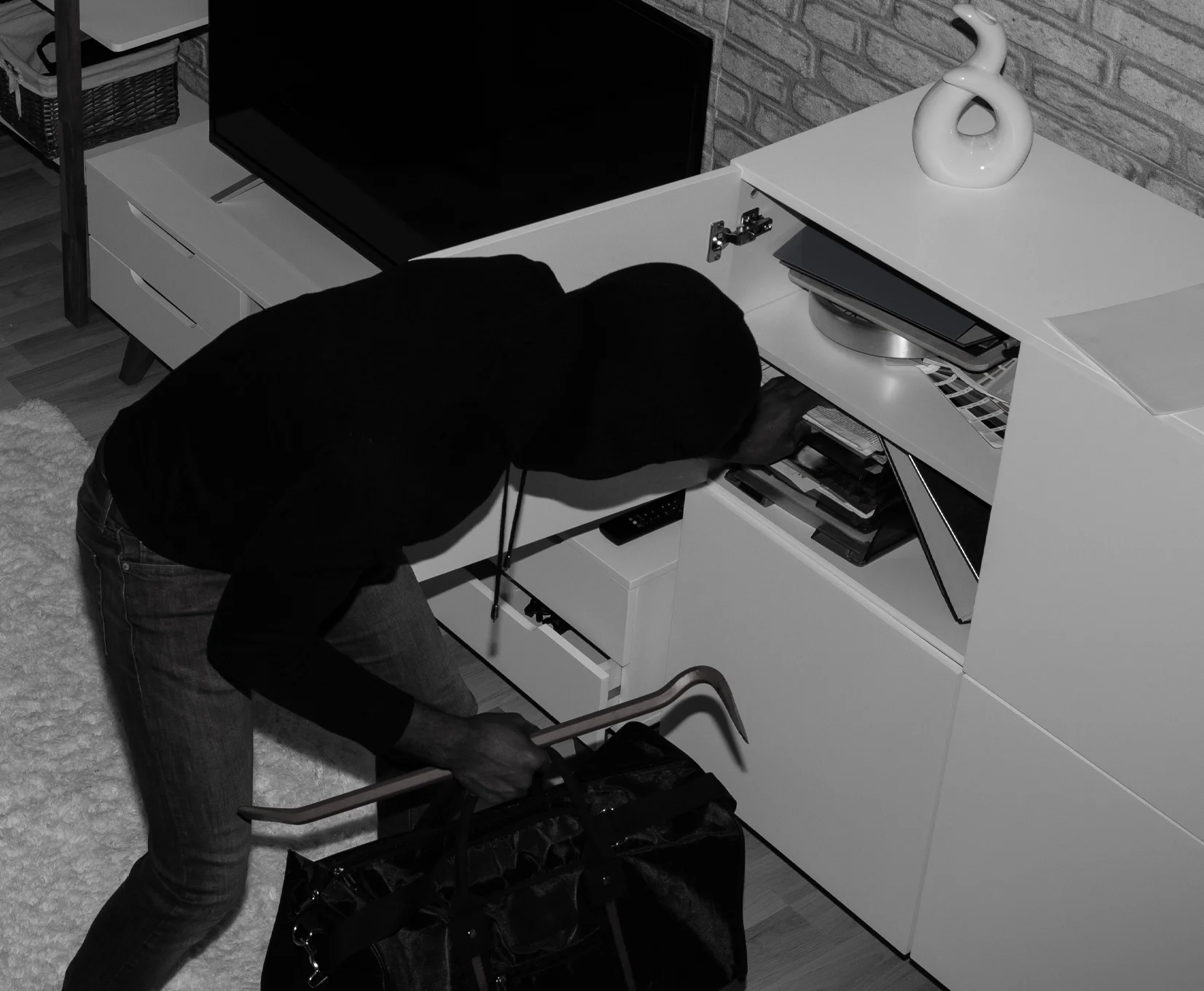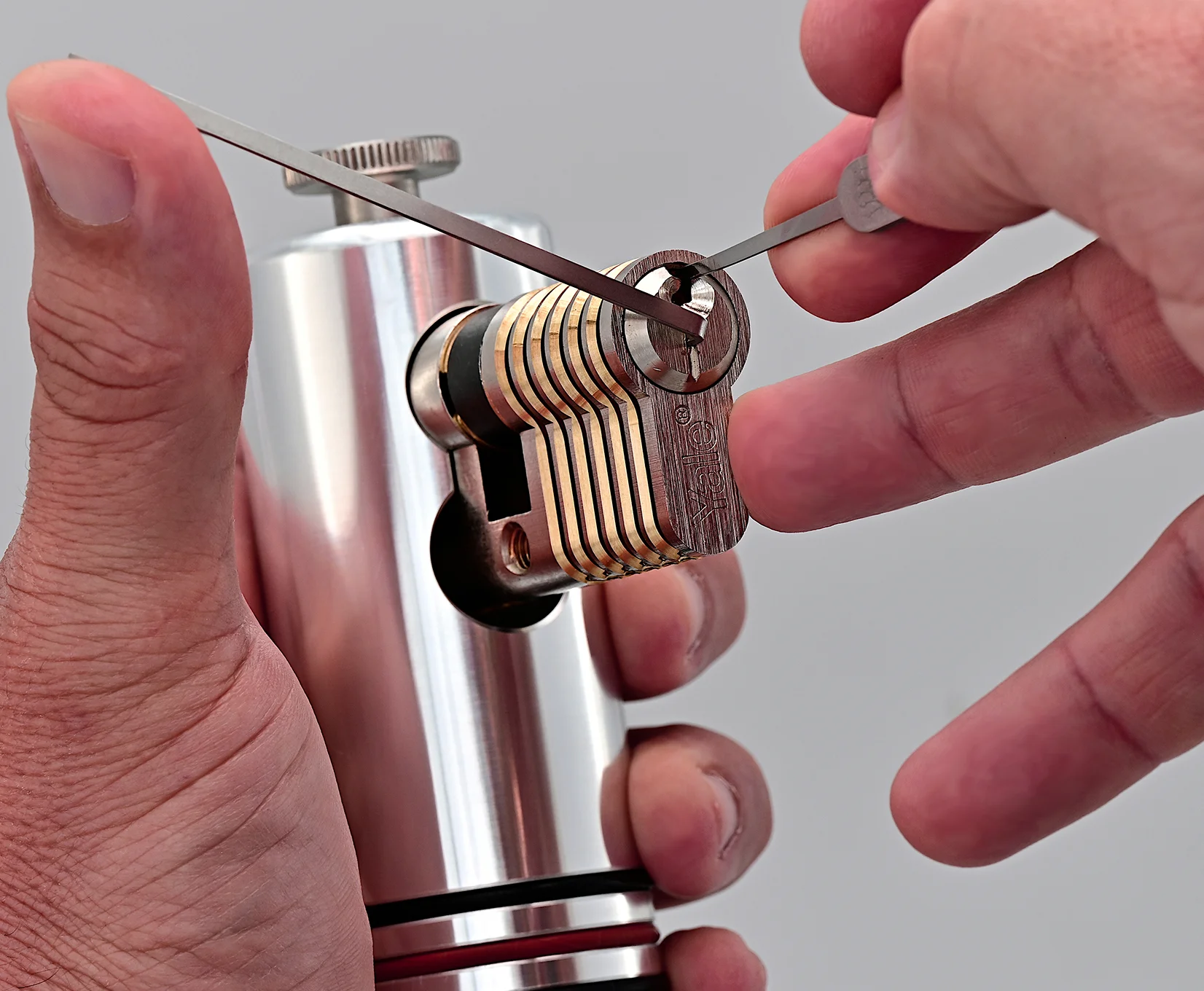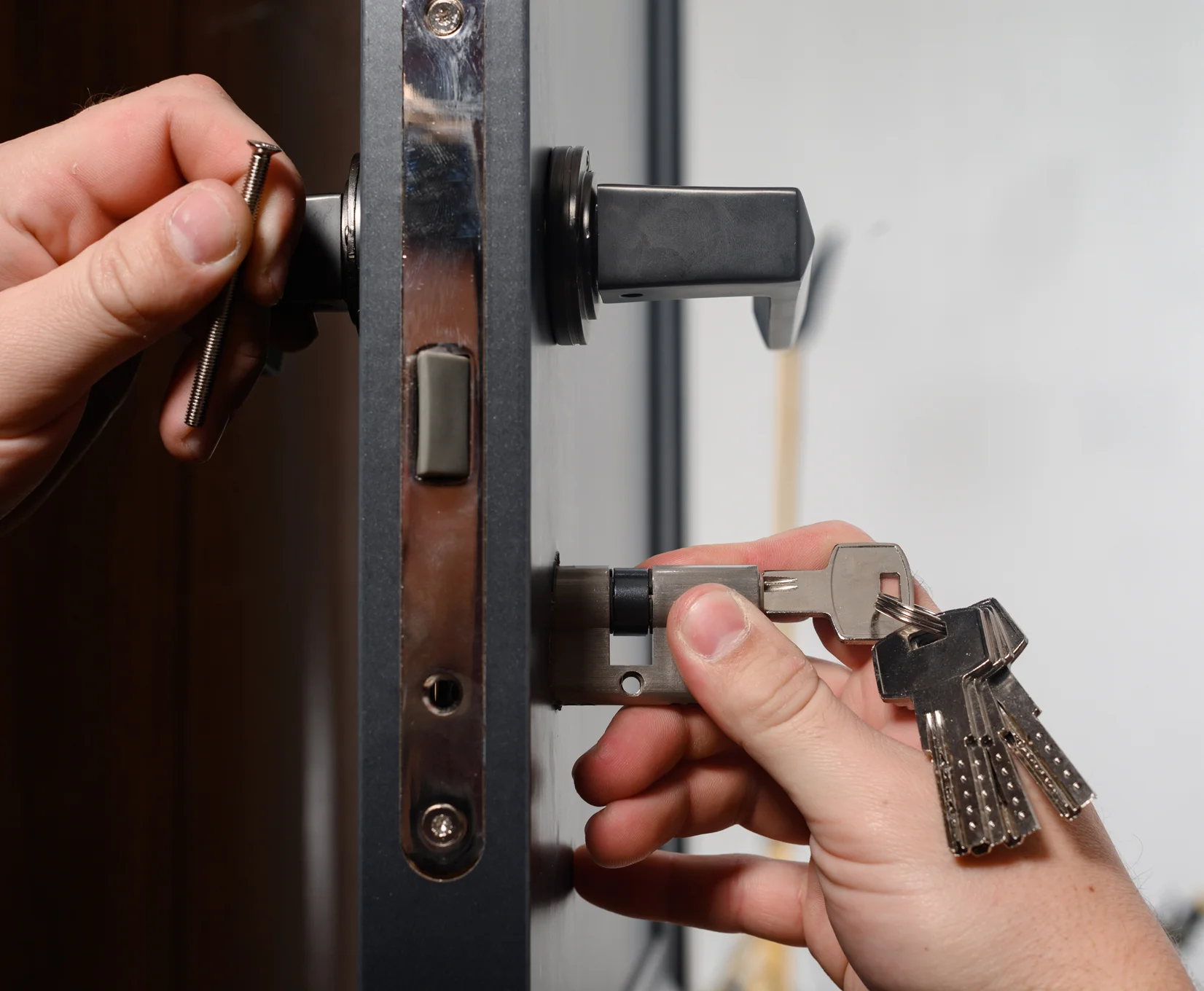
Reading time: 6 minutes / Lars Buchwald / 10 November 2025
Counterfeits and Their Dangers
Contents
→ Cheap lockpicks: temptation, expectation and risk
→ Why photos and marketing can’t replace real quality
→ Practical example: from hobby to costly damage
→ Professional perspective: why experts rely on quality
→ Material and manufacturing risks of cheap tools
→ Inferior tools cause frustration and extra costs
→ Economic impact: counterfeits, market distortion and misuse
→ Liability and reputation risks for professionals
→ How to identify quality and buy safely
→ Training, documentation and lawful use
→ Quality protects both people and wallets
→ Trust isn’t an extra – it’s the standard
Hand on heart — who hasn't done it themselves at least once? Major marketplaces make it easy. With great photos and marketing-friendly copy they promise the moon. The shiny images suggest to the prospective buyer all sorts of things they'll get for their money. As a manufacturer of premium tools you naturally take a look at those offers and, I must admit, sometimes I can't stop shaking my head. But whatever — the stuff (because that's what it is) is bought often and gladly.
Cheap lockpicking tools are simply poor quality
But why exactly? Do customers really think they'll get a 62-piece lockpicking set with top craftsmanship for next to nothing? Or is it just the thought “That will do for me”? We can only speculate. The truth is probably somewhere in the middle. To be clear: everyone should buy what they consider useful and reasonable. It gets messy, though, when products become unsafe or even dangerous — and unfortunately that’s not uncommon.
A practical example — I love my hobby, but…
Let’s stay with lockpicking for a moment. Cheap lockpicking kits are tempting: low price, fast delivery, and an apparently easy entry into a great new hobby. But that’s exactly where the first problems lie. Full of expectation you receive and unpack the new set. “Hmm — it looked different in the photos… more solid, less scratched.” Then you start and attempt your first cylinder, determined to open it with the new kit. I had a spare cylinder in the cellar and that’s what I use for practice. All too often the following happens: you prod away at the “found-in-the-cellar” lock but nothing moves. You apply more pressure to the pick — but it’s already bent and its sharp edges hurt your hand. The tension wrench you use to apply the required torque shows signs of deformation after a short time. What often follows is that the wrench or pick snaps. That’s not only annoying and dangerous, it usually also ruins the cylinder. That’s especially tragic when the novice practised on a real, fitted cylinder from their own front door — ouch.
In short: anyone in this situation risks personal injury, property damage and high follow-up costs. Cheap is only cheap until it isn’t.
Now the interesting part — the pro and their tools
But how does buying, for example, cheap imports from China play out in the professional field? Fortunately, this is a completely different matter and, for the most part, professionals can be reassured. Pros who earn their living opening doors will never equip themselves from dubious sources. They know very well that poor quality prevents good work and satisfied customers. No locksmith wants a disaster at a client’s door — snapped picks or bent bits. Their livelihood would be ruined in no time. Even worse would be a failure during emergency work. If an elderly person has fallen at home and needs immediate help, nothing can be left to chance. Defective or cheap tools here could be life-threatening.
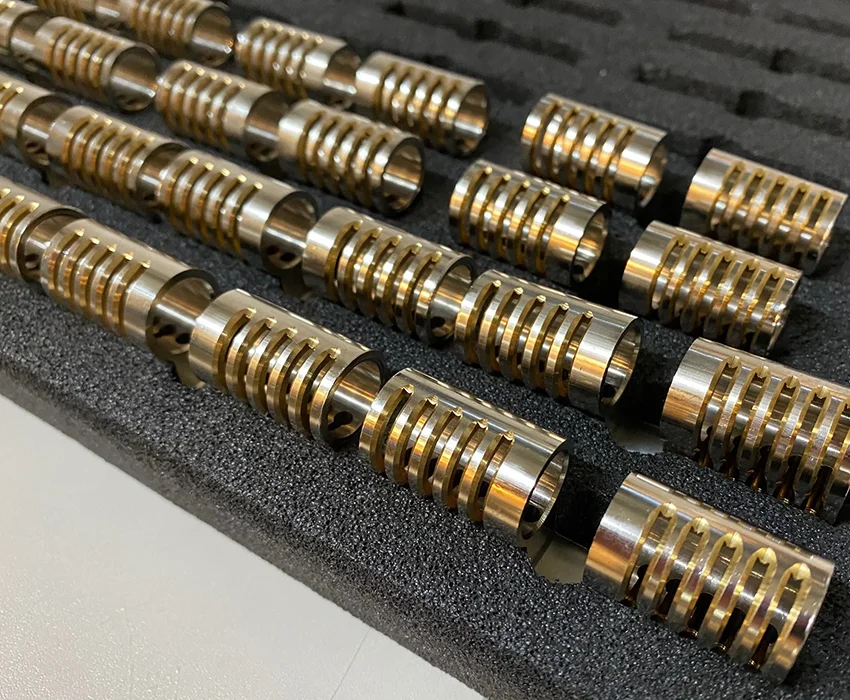
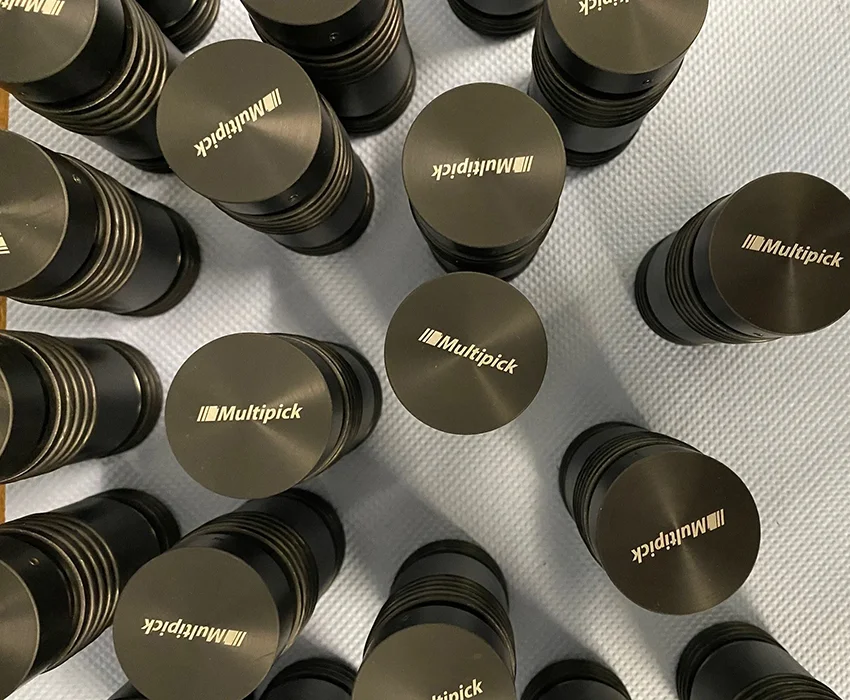
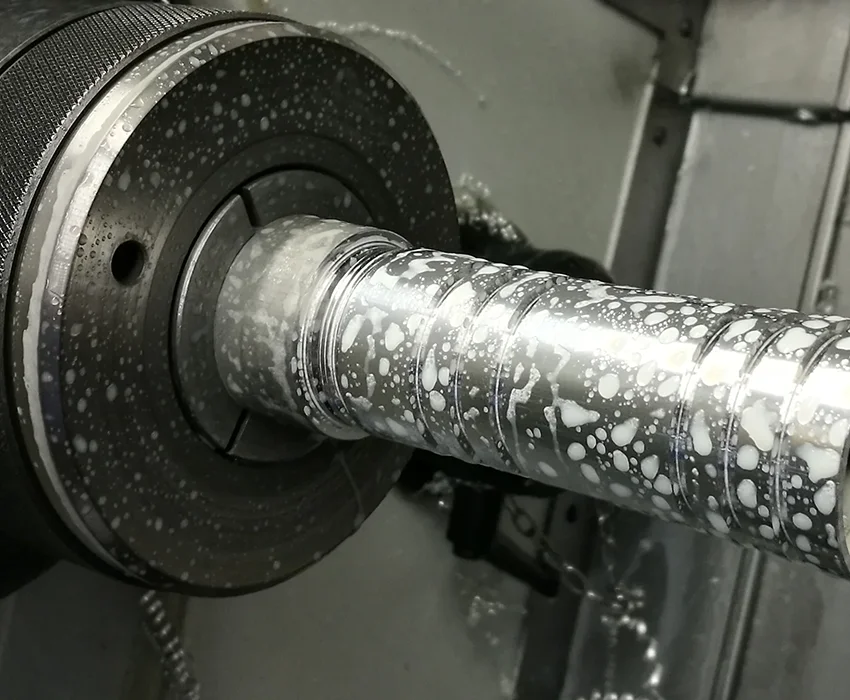
Mechanisms and the Associated Dangers
What are the consequences of using tools that come from sources primarily focused on profit rather than on quality?
Material and manufacturing risks
Counterfeits or extremely cheap tools often use unsuitable alloys, skimp on heat treatment and surface finishing. The result: brittle parts, uneven hardness, sharp edges and increased susceptibility to rust. In practice this means: breakage or bending during use, sharp edges and, in some cases, metal splinters. Very likely damaged locks or cylinders and therefore often extremely high follow-up costs that could easily have been avoided. Industrial observations show that fake tools endanger operational safety across many sectors — lockpicks are no exception.
Poor quality leads to frustration
With low-quality lockpicks there is a real danger that material residue remains inside the cylinder or parts break off and, in the worst case, render the lock irreparably damaged. Beginners in particular tend to press or bend picks far too hard. For hobby lockpickers this means: extreme frustration and, not infrequently, the hobby is abandoned because of the damage or simply because nothing works. That is not only a pity, it is above all unnecessary.
Economic consequences for manufacturers and the market
Cheap no-name tools have always been a problem. They pretend to offer a level of quality and product standard they do not possess. They are produced under poor conditions using inferior components or materials. Added to that is a significant market for counterfeits — plain and simple: fakes. Counterfeits strip value from brand assets — research, development and quality assurance go unpaid. Studies across the EU show that counterfeit goods cause billions in losses, threaten jobs and can favour organised crime. For reputable manufacturers this means lost revenue, increased anti-piracy costs and reputational damage. For customers, trust in the product category as a whole declines, because they assumed they were buying a genuine product from a quality maker.
Reputation and liability issues for service providers
Locksmiths, workshops and trainers who use or sell inferior counterfeit tools quickly risk customer trust and legal action. A damaged lock or an injury caused by poor-quality tools can lead to compensation claims — which, compared with the saved purchase cost, can become expensive very quickly. Personally, I have never seen the groups mentioned above working with counterfeit tools in Germany.
How can I be sure?
• Buy from specialist dealers or directly from the manufacturer. Reputable suppliers can be recognised by, for example, manufacturer guarantees and customer support.
• Check the workmanship: clean edges, even bend radii, no sharp burrs or uneven surfaces. Prices that are unbelievably low are always a warning sign.
• Documentation: keep your proof of purchase; if tools are used in a workshop record their use — important for later liability questions.
• Training environment: use training cylinders and only practise with the owner's consent. Avoid public experiments or practising on other people’s locks.
• Training & handling: a solid foundation requires training. Mistakes due to ignorance are easier to avoid with good training than with cheap tools.
• If you are unsure: contact the manufacturer or a specialist dealer — many offer advice.
• Rely on reputation: check reviews across different platforms. View the webshop and examine the imprint. If in doubt, send a message. Good and reliable companies have a strong online presence.
Quality always pays off
Cheap bargains may seem attractive in the short term, but they can endanger people, destroy locks and become expensive in the long run. Don’t be blinded by tempting offers. At Multipick we have a clear stance and keep a close watch on the market. As soon as we are informed about a counterfeit product, we take immediate action against the manufacturer. We want you to be able to trust that a Multipick product is a top-quality item made in Germany.
Sources & background
• Multipick – Legal notes on lockpicking in Europe (education, responsibility). multipick.com
• EUIPO / OECD – Studies on dangerous counterfeits and economic consequences. European Union Intellectual Property Office
• Police reports / media (e.g. Berlin police warnings on misuse and risks). t-online
• Technical articles on the danger of counterfeit tools in industry (safety and efficiency risks). ARVO
FAQ – everything you need to know
1. How can I tell at a glance if a lockpicking set is a counterfeit or a poor-quality product?
Watch out for unrealistically low prices, blurry or staged product photos, missing manufacturer identification and incomplete product descriptions. Reputable manufacturers provide material details, heat treatment information, warranty notes and a legal imprint — if these are missing, caution is advised.
2. What direct dangers do cheap picks pose to the user?
Inferior alloys and poor workmanship lead to breakage, sharp edges and metal splinters that can cause cuts or puncture injuries. In addition, broken parts often cause serious, sometimes irreparable damage to locks or doors, resulting in high repair costs.
3. What specific risks do homeowners face if a pick breaks inside the lock?
A broken pick can jam the cylinder or irreparably damage the locking system, making a costly replacement necessary. It can also create safety issues (the lock may no longer close securely) and potential liability problems if third parties need to be called in.
4. Why do so many users still buy cheap sets?
Low prices and large sets suggest an easy entry and seemingly great value; many buyers underestimate the importance of material and build quality. For beginners, this may work in the short term — but in the long run, frustration, breakage and damage usually make it the more expensive choice.
5. How do professional tools differ from cheap imports?
Professional tools use tested alloys, proper heat treatment, precise shaping and ergonomic handles. Manufacturers provide documentation, service and spare parts. Professionals rely on reliability and legal safety — which pays off in quality of work and reputation.
6. What legal and economic consequences do counterfeits have for manufacturers and the market?
Counterfeits deprive brands of revenue, damage reputation, increase anti-piracy costs and can, on a large scale, threaten jobs. Buyers face indirect costs through unsafe products and a loss of trust in the entire product category.
7. What should service providers (e.g. locksmiths, emergency services) consider when purchasing tools?
Service providers must rely on trustworthy suppliers, transparent procurement channels and proper warranties. Tools in use should be documented and regularly inspected to avoid liability risks and operational failures.
8. What precautions are recommended when training with lockpicks?
Practise only on training cylinders or with the explicit permission of the owner; always use high-quality, appropriate tools.
9. How can I report counterfeits?
Report counterfeits to the brand owner and the platform operator. Document product photos, order and shipping details, and product defects. Many providers offer reporting forms or legal assistance; platforms can block or remove listings.
10. Is the higher price for premium tools really worth it?
Yes. The higher initial cost pays off through durability, fewer errors or damages, and better handling — for both private users and professionals. Quality protects against injuries, expensive lock repairs and legal problems.
About the Author
Lars Buchwald has been an integral part of the Multipick team since 2006, where he dedicates his passion and expertise to marketing and graphics. As a trained graphic designer and copywriter, he brings a wealth of experience and creativity to his work, which enables him to convey the messages of the ingenious tools in an appealing and convincing way. With a keen sense for the needs of the target group, he steers Multipick's marketing fortunes. His commitment is characterized by a high degree of sensitivity and the right richer at the right time.
As a native of Bonn, Lars not only has close ties to the region, but has also firmly integrated his passion for marketing spear tools into his professional work. His attachment to the city is reflected in his work and gives his marketing campaigns an authentic, Bonn touch.
Related Articles
About Multipick
Multipick was established here in Bonn in 1997 and has had its headquarters and production facilities here on the Rhine ever since.
Why should we leave here? Anyone who has been here before will agree that it is a very beautiful place and that the people are ‘typically Rhineland’, open-minded and friendly. From an early stage, we began to occupy ourselves with a wide variety of entry tools. We tried out lock snappers and core extractors such as the Bell and gathered a wealth of experience with a wide variety of tools. Whether it was a lock pick set or special tools for fire brigades and locksmiths, in the end the door or window had to be opened. In line with the motto, you got the problem and we got the solution.
Many tools, irrespective of hobby or professional, are dispatched from our warehouse to destinations throughout the world.
Opening tool kits for caretakers and locksmiths, pick sets and lock picking accessories for Locksport enthusiasts and Hobbs hooks for specialists to unlock locked safes. There are thousands of different ways to deploy our specialised tools. Our TFG latch plates and key turners allow a closed door to be reopened. QA Pro 2 and our V-Pro core pulling screws can be used to open a locked door. We also offer milling burrs and drill bits for those situations where there really is no other way. Many useful aids such as MICA opening cards, wedges, door latch spatulas, door handle catches and spiral openers, which are all useful tools to help you get the job done. But even if things get a bit complicated, you are in good hands with us. Products such as the Kronos and Artemis electric picks are our top highlights. Anyone who likes to open dimple locks or disc locks will be delighted with the ARES system. For opening windows, we offer you a range of top products from Kipp-Blitz. Favoured by emergency services such as the fire brigade, THW (Federal Agency for Technical Relief) and police. Many of our tools are manufactured in-house. This gives us the liberty to manufacture quickly and in a customer-orientated manner. No lengthy supply chains and subcontractor dependencies. This has a number of advantages both for you and, of course, for our environment. One big advantage is that you get everything from a single source, enabling us to offer you consistent quality. This is also our promise to you, all from a single source, Made in Germany, Made in Bonn - promised.




































